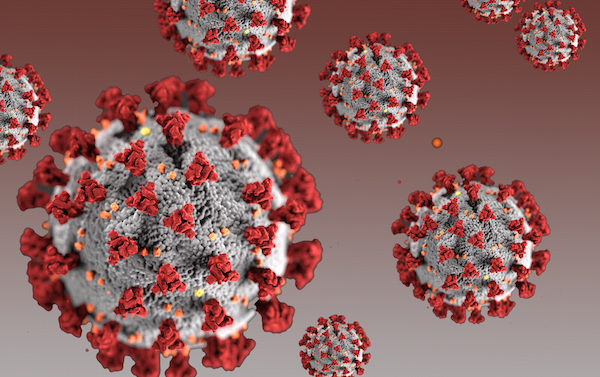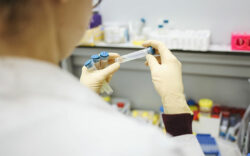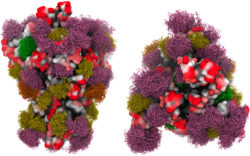Local, state and national coronavirus statistics continue to increase each day, to the dismay of everyone from parents, teachers and students to local leaders, business owners and public health experts alike. Looking ahead to fall, the numbers do not bode well anytime in the near future for how local schools and UGA will hold classes, much less for the prospect of football, concerts or other large events that bring visitors to Athens.
Cases Are Spiking
Looking at the numbers in detail, it’s clear there’s been a tremendous spike in cases in July. Before the July 4th weekend, Athens-Clarke County had a cumulative total of roughly 400 positive, confirmed cases since the pandemic hit locally in March. On July 10, the number had more than doubled to 897. As of July 20, Athens-Clarke County had 1,255 positive cases and 15 deaths. That means cases tripled in three weeks.
While deaths haven’t increased drastically, the death count usually lags behind increases in positive cases by a few weeks. The real concern, whether deaths are increasing or not, is that an increase in cases will further stress the local health-care system. Hospitals are stressed with everyday patients already. Increasing coronavirus hospitalizations would further stress resources for hospitals.
On Wednesday, July 15, Athens-Clarke County Commissioner Russell Edwards reported that both St. Mary’s Hospital and Piedmont Athens Regional Medical Center were diverting non-emergency patients. Only seven critical-care beds remained open at local hospitals, and 63 beds were occupied at that time, according to the Georgia Emergency Management Agency.
Last week, 84 percent of all the critical care (or ICU) beds were in use statewide. That meant only 16 percent of all the beds in the state were available for patients who require hospitalization and ICU care.
“I think that we have tipped over into exponential growth,” said Amber Schmidtke, a public health microbiologist who is monitoring the COVID-19 situation. “So I am not shocked by where we are. I think that we’re going to have several record-setting days in our future. I am concerned about how our hospitals are coping with the increase not just in cases, but in hospitalizations.”
Testing Isn’t 1, 2, 3
Despite what President Trump has suggested in recent weeks, the numbers are not just going up because we’re testing more. The percentage of daily positive cases has gone up and shows no signs of letting up any time soon. We’re actually testing more robustly and getting a better understanding of cases now than we were at the outset of the pandemic, Schmidtke said.
“We’re doing better than we were at the earlier stages of the pandemic, and another development is that our testing output has become far more consistent, and so that’s a really good sign, but we are still seeing a really high positivity rate on a day to day basis,” she said. “The reason that’s important is that the [World Health Organization] recommends that you get at or below a 5% positive rate, because that’s a sign that you are testing widely enough that you’re likely not missing any asymptomatic cases.”
New York, for example, had very high positivity rates at the beginning of the pandemic, but they’ve since knocked their transmission rate down so much that they have very few cases on a day-to-day basis, with a daily positivity rate of 3%. Georgia’s positive test rate is nearly 15%.
Locally, it has become more difficult in recent weeks to get a testing appointment in a timely manner and get results quickly. Upon inquiring with a local CVS, for instance, Flagpole learned that testing appointments were booked up for almost the whole next week. This lag time, notes Schmidtke, is concerning but isn’t a problem unique to Georgia. Nationwide, there are testing supply shortages again.
“We know there’s a bottleneck right now in terms of test availability, not just as our sample collection goes, but also the test itself. The materials… are in short supply, so that’s part of it,” she said. “We’re also having pretty significant backlogs.”
The lag time puts the whole system of trying to curb the spread in danger, she added. If you’re supposed to shelter in place while you wait for test results, a 10–14 day delay in getting results is going to make people less inclined to stay home and won’t prevent people from exposing others if they decide not to wait until they get their results.
A local Department of Public Health spokesperson told Flagpole earlier this month that they have expanded their contact tracing capability and added an additional 18 contact tracers to help track and isolate those who have been exposed to someone with a positive case. Given the increase in cases, however, that could mean an exacerbated and unmanageable case load for local contact tracers. DPH did not respond to additional inquiries about how the spike in numbers is affecting contact tracing locally.
While the ACC Commission did pass a mandatory mask policy for the county earlier this month, Gov. Brian Kemp on July 15 extended coronavirus restrictions and added language that specifically bans local governments from passing face mask ordinances for public places. Kemp then sued the City of Atlanta over a similar ordinance. That likely will not help the situation here in Athens, although Mayor Kelly Girtz says the law is still in effect.
“We’re not on an island here in Athens,” Edwards said. “People come and go from all the surrounding counties, so no matter what laws we passed locally, their effectiveness is diluted by the fact that there is no statewide policy providing any protection.
“The real hope,” he added, “is that Gov. Kemp will muster the courage to enact public health laws that studies have proven exhaustively worldwide help prevent the spread of the coronavirus.”
According to the Centers for Disease Control and Prevention, there is increasing evidence that masks help keep people who unknowingly have COVID-19 from spreading it to others. “We are not defenseless against COVID-19,” CDC Director Robert R. Redfield said in a July 14 news release. “Cloth face coverings are one of the most powerful weapons we have to slow and stop the spread of the virus—particularly when used universally within a community setting. All Americans have a responsibility to protect themselves, their families and their communities.”
What’s Ahead
There is some glimmer of hope ahead on the scientific front. Locally, the University of Georgia has received the Clinical Laboratory Improvement Amendments (CLIA) certification, meaning that they can now test human samples. That designation could make an impact locally, especially as students return to town. UGA would be able to help process samples and, in theory, their additional resources and assistance could improve return time on results.
Another positive point: The mandate for everyone to wear masks on the UGA campus, as well as the local mandate to wear masks in public in Athens-Clarke County, are both likely to help curb the spread of the virus, if they’re done in conjunction with social distancing and regular hand-washing.
On the other hand, UGA students coming back to town bring a lot of concern, as they may further stress testing capacity and ignore CDC guidelines to practice social distancing and wear masks around others outside of class at social gatherings. While younger people are less susceptible to the disease, most public health experts believe they’ve been driving the recent spike in the South as they flocked to reopened bars, leading the governors of Texas, Florida and Louisiana—though not Georgia—to close them again.
While UGA is not ready to present their plans officially, interim Senior Executive Director for Marketing and Communications Gregory Trevor offered the following statement in response to questions about UGA’s plans for testing and other potential measures in the fall:
“From the outset, the University of Georgia’s primary commitment has been to the health and safety of our faculty, staff and students. We have been working diligently—with the engagement of faculty health and medical experts—to prepare our campus for the resumption of in-person instruction this fall in a manner consistent with federal and state health and safety guidelines.
“These preparation efforts are ongoing, and we are developing plans for testing, screening and surveillance, which will be shared with the campus community when they are complete.
“Contact tracing remains the responsibility of the Georgia Department of Public Health.
“The university continues to provide regular updates to the campus community about our response to the COVID-19 pandemic. These updates are also available on the university’s COVID website: uga.edu/coronavirus/info.php.”
Like what you just read? Support Flagpole by making a donation today. Every dollar you give helps fund our ongoing mission to provide Athens with quality, independent journalism.










